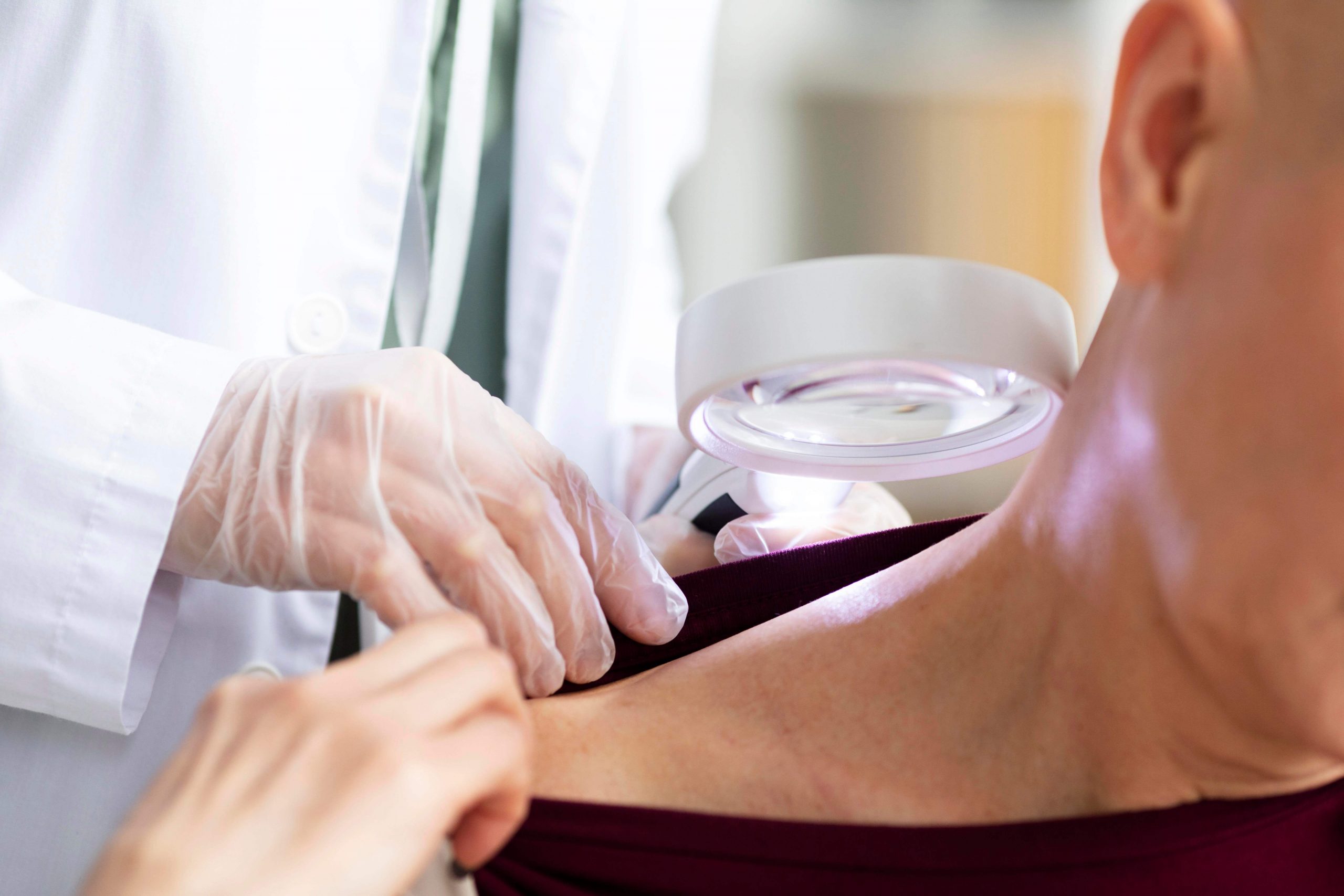Sep 15, 2019
Skin Cancer Screening: What to Expect During the Check
What Is Skin Cancer?
Skin cancer is the abnormal growth of skin cells, which commonly develops in the outermost skin layer (epidermis) or the skin exposed to the sun.
The common major types of skin cancer are:
- Basal cell carcinoma (BCC). This is the most common type of skin cancer and is mainly caused by sun exposure. It’s also the most curable skin cancer that rarely spreads to other parts of your body if diagnosed and treated early.
Common signs of BCC include a waxy bump on your skin (face, ears or neck) or a flat, flesh-coloured scar-like mark on your back or chest.
- Squamous cell carcinoma (SCC). SCC is a more severe form of skin cancer that is slightly more likely to spread than BCC. However, it is also highly treatable with early detection.
Common symptoms may include a firm and red nodule or a flat sore with a scaly crust on your skin (face, ears, neck or arms).
- Melanoma. This is the most severe form of skin cancer and can be highly invasive. It can develop anywhere on your body, in an existing mole (which can turn malignant) or as a new growth.
Common signs of melanoma may include skin colour irregularities, changes in appearance and size of your mole, growth with irregular borders or abnormal dark spots.
Why Is Skin Cancer Screening Important?
Skin cancer screening is crucial in detecting and preventing skin cancer early.
Skin cancer is one of the most common cancers in Singapore. More specifically, it’s the 6th and 7th most common cancer for Singaporean males and females respectively.
However, the initial signs and symptoms of early skin cancer may not be apparent and may even be unnoticeable such as growths in concealed places (inside your mouth or under your nail) or small abnormal spots. As such, it is paramount to recognise the early warning signals of skin cancer and schedule timely skin cancer screenings. With early detection, skin cancer can be highly treatable.
How to Prepare For Skin Cancer Screening?
Skin cancer screening is performed to detect the signs of skin cancer. A dermatologist singapore or skin specialist will typically check for abnormal growths or spots that they suspect might be cancerous.
Before the screening, it might be a good idea to examine your body and make a note of any unusual or suspicious marks that appear (especially for moles that are new, changing in appearance or bleeding). It’s also vital to inspect the more obscure parts of your body, such as your scalp or under your ears, which usually go undetected.
Furthermore, ensure that you remove all makeup or any bandages covering your skin and avoid wearing jewellery. This will help facilitate and ease the screening process.
How Is Skin Cancer Screening Done?
A skin cancer screening typically consists of a physical examination and a dermatoscopy. Dermatoscopy is the examination of the skin surface using a special magnifying tool (dermatoscope).
The dermatologist will examine every part of your body during the physical examination to check for possible signs of skin cancer, mainly the size, shape, texture, and appearance of abnormal growths or spots. A dermatoscope may also be used to have a more detailed inspection of your skin.
What Happens If My Doctor Detects a Suspicious Mole?
If your dermatologist singapore detects a suspicious mole during the screening, a further diagnostic test, also known as a skin biopsy, may be conducted.
A skin biopsy involves removing a portion of the skin and the tissue, which will be sent for further lab analysis under a microscope. This procedure will confirm whether a spot is cancerous or not. If the mark turns out to be cancerous, additional treatment options may be recommended to remove it.


